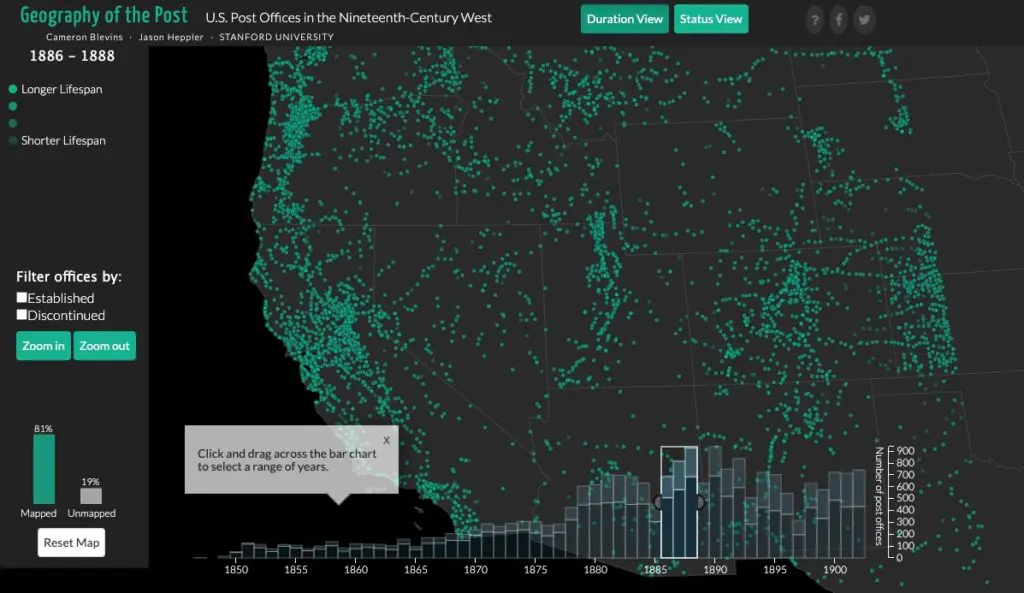The right wing is full of contradictions — a defining trait, almost. Chief among them is this bit of cognitive dissonance:
- hatred of liberals
- love of “freedom”
You can’t have this both ways, philosophically speaking. The entire concept of individual liberty (hint: it’s right there in the name!) is a core insight of the Enlightenment.
The Enlightenment Inspired the United States
This 18th century philosophical movement grew large in Europe, predating the French Revolution of 1789 and influencing heavily the American Revolution. Resting on the then recent revolutions in science, math, and philosophy including the works of Descartes, Galileo, Kepler, and Leibniz, The Enlightenment has its roots in 1680s England with the political philosophy of John Locke.
Locke argued that human beings are capable of self-improvement via rational thought and accumulated experience. His philosophy was a break with traditional assumptions that knowledge came only from authorities, and that truth was opaque and unknowable. Working in the same era as Isaac Newton, Locke’s ideas about human nature were highly informed by the Scientific Revolution well underway by this time. The two strains of philosophy have a common commitment to reason and empiricism at their core.
Political ideas of The Enlightenment
You can appreciate why any number of authorities would find the radical ideas of the Enlightenment philosophers potentially threatening — their age-old power structures were in jeopardy. It represented the democratization of knowledge, removing a dependency of the less powerful upon the powerful as a singular source of truth. The church, monarchy, and aristocracy were all on the chopping block — sometimes literally — during this age of philosophical and political revolutions.
The following philosophical and political ideals emerged from The Enlightenment:
- Reason is the primary source of authority and legitimacy. Phenomena can be examined in the real world to understand more about how things work and what is true. Everything should be subject to critical examination, versus simply being taken on faith.
- People have natural rights, and prime among them is liberty — or freedom to pursue the kind of life they so choose, without infringing upon the natural rights of others.
- Equality is the concept that all members of a nation or society are equal members and have equal standing in terms of their political influence and power. These are expressed in the American concept of equality before the law (14th Amendment), free speech, and one person/one vote.
- Progress as the collective project and meaningful unifying force for a nation or group. The goal is to create better societies and better people by discarding outmoded traditions and embracing rationalism.
- Religious tolerance as a rational way to prevent civil unrest. Appears in the French Declaration of the Rights of Man and the Citizen (1789) and in the First Amendment of the US Constitution.
- Consent of the governed is one of several foundations of liberal thought from philosopher Thomas Hobbes, who stated that to be legitimate, political power must be representative and agreed to by the people bound by it.
- The social contract is a foundational concept from both John Locke and Jean-Jacques Rousseau, extending the consent of the governed and placing it as the true basis for governmental authority.
- Constitutional government has its underpinnings in a 1748 work by French judge and political philosopher Montesquieu, titled The Spirit of the Laws. This tome is the principle source for the concept of separation of powers in government as a system of healthy checks and balances to protect political liberty.
- Fraternity in a philosophical sense is concerned with an ethical relationship between people, based on love and solidarity as the foundation for how individuals in society should treat each other.
- Separation of church and state is a logical outgrowth of freedom of religion. The idea is older, but its introduction to the United Sates is attributed to Thomas Jefferson who declared the First Amendment’s Establishment Clause to be about building a “wall of separation between church and state.”
- Property rights as a natural outgrowth of natural rights and labor (Locke).
Freedom is self-determination, but is not unlimited
The history of political philosophy reveals the evolution of Enlightenment thinking over the course of centuries, and how the ideas underpinning our government have deep roots. Freedom isn’t a new idea, and it does come with some caveats.
The first caveat is that freedom cannot be unlimited if we are to have a civil society. As Hobbes put it, if men are left to their natural state our lives will be “nasty, brutish, and short.” Also, we cannot preserve equal rights for all citizens if some members of society are allowed to trample on the rights of others.
That’s why the concept of liberty is so important. It’s important to our democracy, and it’s important to our day to day lives and how we treat each other. Freedom and liberty are similar and we often use these words interchangeably, but there is a very important distinction between them.
Liberty flows from equal rights
Liberty means that I have freedom, but only insofar as I don’t intrude upon your freedom. I must respect your rights and not invade your sovereign boundaries of life and property. For all persons are created equal, and the rights of one another shall not be infringed.
Political liberty has its foundations in Greek philosophy and was closely linked with the concept of democracy. Aristotle and Plato among others planted the seeds that would later be picked up by Hobbes, Locke, Rousseau, Montesquieu, and John Stuart Mill — giving us our modern concept of liberty today.





